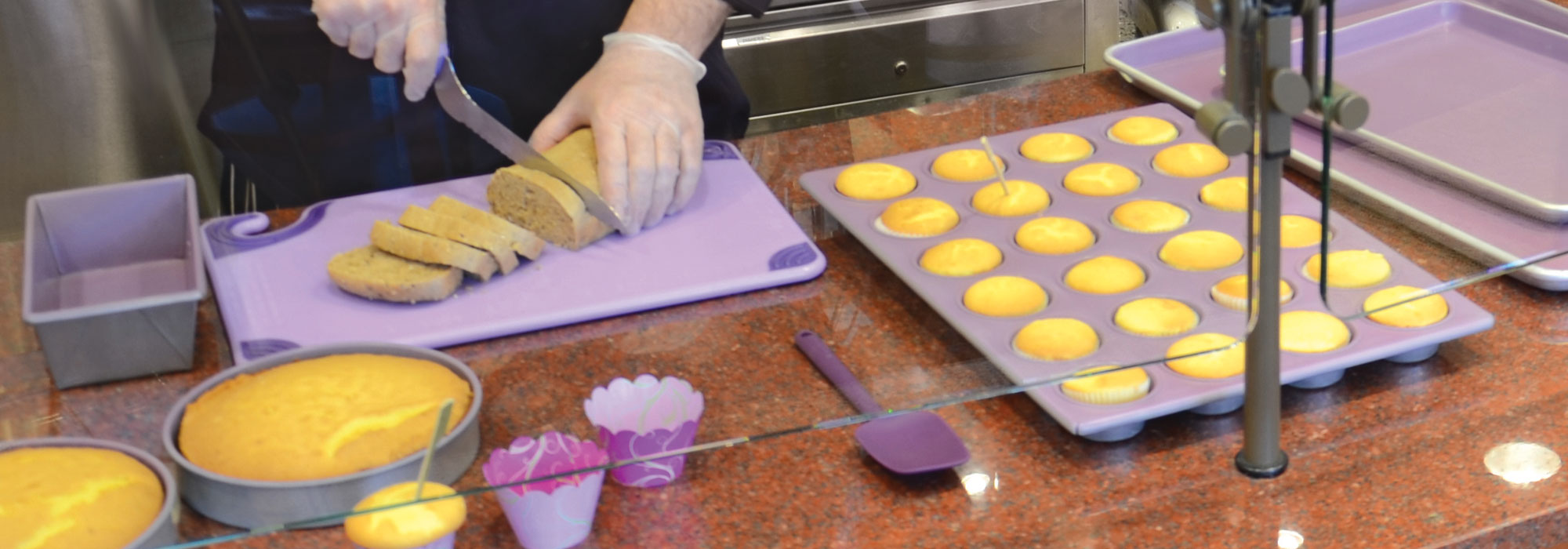
We care a lot about your experience on our website. Please tell us how we can improve.
If you want an immediate response, chat with us now
As a foodservice provider, giving your customers peace of mind with allergen-related concerns should be a top-priority, especially if you offer an allergy-friendly menu. While it's a part of your everyday job for many customers to have certain taste preferences of your dishes, an even bigger role to play is to ensure that you're aware of certain allergies your customers may have. To avoid causing serious sickness—or even life-threatening consequences—there are a few things about food-related allergies that you should know.

A few types of food-related allergies that restaurants and food establishments can work to reduce include:
Hubert can help with bridging the gaps between commercial kitchen knowledge of food allergies and having readily available allergen awareness supplies.
View all of our in-stock options to get started:
Most people are aware of their allergies and may bring them up or ask if menu items contain foods they're allergic to. However, a lot more goes into preventing cross-contamination than many food establishments realize.
For example, if a customer has a tree nut allergy, you may think it's enough to simply not serve them nuts. But, unfortunately, there's a bit more to it—cross-contamination is responsible for many incidents of severe allergic reactions. In this example, if the cutting board being used to slice nuts is then used right after to prepare food for someone who's allergic to nuts, they're likely to have an allergic reaction. Since there's still remnants of nuts on the cutting board or knife, the process of cross-contamination still affects your customer with the nut allergy. This is how cross-contamination works.

Your ability to avoid cross-contamination and keeping your customers safe depends on your kitchen's ability to safely handle and prepare food. For example, you might have the right supplies, but your staff may not be aware of which tools to use for what purposes. Or, your staff may be aware of food allergy concerns, but you may not have the right tools.
A few steps that you can take to make your kitchen safe from cross-contamination and prevent allergic reactions include:
Many foodservice establishments make the mistake of thinking a quick wipe down between food preparation for customers is enough to avoid an allergic reaction. However, this is often not enough. Preventing cross-contamination can be achieved through washing your kitchen supplies, but this can take a lot of time, especially in a very busy kitchen.
So, having multiple sets of tools, like knives, cutting boards, etc. (and keeping them stored separately), is essential to avoiding allergens contaminating your supplies. Fortunately, allergen tools can be purchased—they're usually purple color, making them easy to identify and keep separated. This takes the guesswork out of the process for you and your staff - and eliminates extra time that you simply don't have to waste!
Allergen awareness items that can help you serve customers safely may include:

Only Hubert delivers the expertise and products to solve complex challenges like overcoming the labor shortage, driving more food sales, and creating a memorable experience for customers.
For 75 years we've helped many industries—including hospitality, education, food retail, healthcare, retail, and more—overcome these unique challenges with our expertise and line of products, including displayware, display fixtures, décor, signage, bar & beverage, food prep equipment, large commercial equipment, ice machines, merchandisers, and back of the house equipment.
Want to learn more? Talk to an expert.